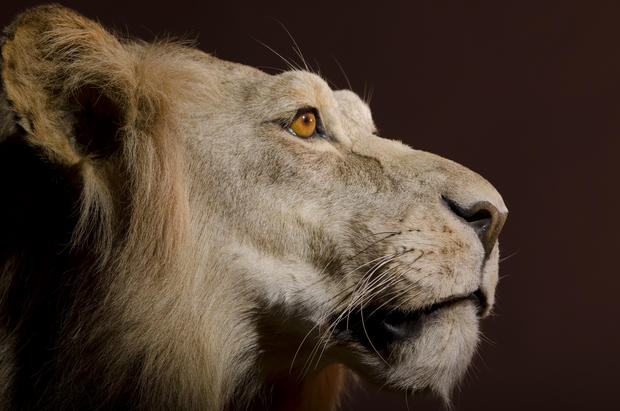Trophy hunting's contribution to conservation? Not much
Nearly a year after a beloved lion named Cecil was killed by an American dentist in Zimbabwe, a report out this week finds little evidence that the fees trophy hunters pay help efforts to protect wildlife.
While well-regulated hunting in the U.S. does funnel taxes and fees from hunters to conservation efforts, the same cannot be said about Africa, where widespread corruption and mismanaged conservation programs keep money from protecting threatened species, according to the finding of the Democratic staff of the House Committee on Natural Resources.
While poaching is still the biggest threat to animals such as lions, leopards and rhinoceroses, trophy hunting is also a significant factor in killing members of "these rapidly declining populations," the 25-page House report said.
Big-game hunters can pay tens of thousands of dollars to cover trophy fees, professional guides, transportation and lodging, money that has been used to maintain conservation efforts in poor nations. Still, in tracking where trophy hunting revenue landed, the report cited "many troubling examples of funds either being diverted from their purpose or not being dedicated to conservation in the first place."
Trophy hunting is a lucrative industry, and those who participate have the means to contribute to conservation as well as to ensure they're behaving responsibly, the report found. "However, as the tragic death of Cecil the Lion showed us, trophy hunters do not always play by the rules, and the trophy hunting industry needs to be regulated and held accountable for there to be any hope of a consistent conservation benefit."
Minnesota dentist and trophy hunter Walter Palmer belonged to the Safari Club International (SCI), the largest advocacy organization representing big-game trophy hunters, until the controversial killing prompted the SCI to suspend his membership.
The SCI offers awards in dozens of categories, including those for killing the most species in the most-distant places and for killing multiple species of bears, big cats and moose around the globe. Before his suspension, Palmer had won a "Continental" award from the group for killing a dozen animals in North America and was edging closer to a "grand slam" awarded for killing an African elephant, a leopard and a Cape buffalo.
Michael Markarian, president of the Humane Society Legislative Fund who oversees its lobbying and political activity, praised the report for refuting what he termed "false claims" by trophy-hunting advocates.
"Trophy hunters make the Orwellian argument that they must kill animals in order to save them, that they are sprinkling dollars on local economies with their 'pay-to-slay' activities and that these funds also pay for conservation efforts," Markarian said in a blog post. "By visiting countries like Kenya and Botswana that have shunned trophy hunting and supporting eco-safaris and wildlife watching ventures, tourists can show that they value Africa's wildlife -- alive."
The SCI is disappointed with the report and does not believe it represents the view of the entire committee, emailed Chip Burkhalter, the SCI's director of government affairs.
"The resources that hunters bring through direct and indirect expenditures provide a vital source of income to the the conservation of many species and highly impoverished areas throughout Africa, Burkhalter said. "Hunters travel more often and to more remote parts Africa than average photographic tourists; but the best solution for wildlife is for hunting and photographic tourism to coexist."
An analysis of five threatened or endangered species -- the African elephant, African lion, black rhinoceros, southern white rhinoceros and leopard in Namibia, South Africa, Tanzania and Zimbabwe -- found trophy hunting to be "managed well in some areas and poorly in others," the House report said.
The report concluded that the U.S. Fish and Wildlife Service (FWS), the agency responsible for allowing or prohibiting protected species imports, could improve its permitting process to help ensure only trophies that do enhance species survival are allowed into the country.
Presumptive Republican presidential nominee Donald Trump entered the fray last summer by defending his his sons after they were criticized for hunting endangered wildlife in Africa.
